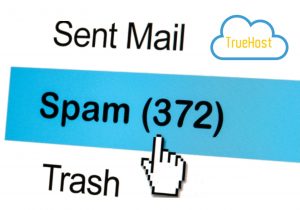
Spam email
Spamming refers to sending of unsolicited messages, especially advertising messages. It also includes sharing of such unwanted messages through other platforms such as social media, SMS, or even comment sections on websites.
Email spamming is the most common form of spamming, which involves sending emails to indiscriminate audience, mostly for marketing purposes. Most of the spam senders usually hijack and use other people’s servers to send the emails, as internet hosting companies always block spamming activities by limiting the number of emails that can be sent per hour, blocking port numbers that may be used for spamming, or even having separate web and mail servers.
Spamming has negative effects on the sender of the spamming messages, the receiver of the spam messages, and the web hosting services providers such as TrueHost. This is because most of these messages are never read, and if they are, they put the sender’s reputation at risk. Truehost incurs high costs in terms of software and filters used to block spam, and this may sometime lead to legitimate emails being wrongly flagged as spam.
It is important for users on Truehost platform to ensure that they do not send spam messages. The other important measure is to ensure that your services are not hijacked by spammers, who install worms in your hosting packages, and leave a backdoor that is used for spamming. This can be done by using legitimate plugins, and avoiding installation of untrusted software.